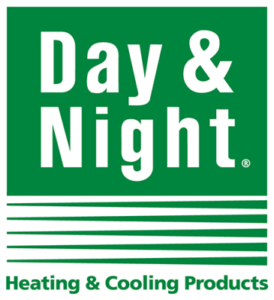New Orleans, with its sultry summers and mild winters, demands a dependable HVAC system. A system breakdown during peak times isn’t just an inconvenience; it can be downright unbearable. Knowing when to consider a new HVAC system is crucial for residents aiming for continuous comfort.
Understanding the Lifespan of HVAC Systems
The average lifespan of an HVAC system is about 15 to 20 years. However, factors like brand quality, maintenance frequency, and usage patterns can influence this. Regularly serviced systems tend to last longer, but even the best-maintained units will eventually require replacement.
Signs It’s Time for an Upgrade
- Inconsistent Temperatures: If you’ve noticed that some rooms are too cold while others remain warm, it’s a clear indication your system is struggling to distribute air evenly.
- Frequent Repairs: If your HVAC system requires constant repairs, it might be more economical to replace it rather than patch it up repeatedly.
- Rising Energy Bills: A sudden or gradual increase in your energy bills can signal that your system is no longer running efficiently.
- Excessive Noise: Older systems tend to operate louder, but if the noise level is disruptive or accompanied by unusual sounds, it’s time to inspect and possibly replace.
- Age: If your HVAC system is nearing or past the 15-20 year mark, start considering a replacement.
Benefits of a New HVAC System
Investing in a new HVAC system might initially seem daunting due to the upfront costs. However, for residents familiar with the unique hvac new orleans climate demands, the advantages of an upgrade are clear. Not only does a newer system mean fewer instances of needing new orleans air conditioning repair but delving deeper into the benefits reveals both immediate and long-term advantages.

- Enhanced Energy Efficiency: One of the most compelling reasons homeowners switch to modern HVAC systems is the marked improvement in energy efficiency. The latest models, adhering to contemporary energy standards, ensure that you get the most out of every energy dollar spent. This not only means a reduced carbon footprint but also considerable savings on monthly utility bills.
- Superior Indoor Air Quality: The indoor air quality has a direct impact on the health and well-being of the residents. Newer HVAC systems come equipped with advanced filters that trap pollutants, allergens, and other particulates. This results in cleaner, fresher air inside the home, reducing risks associated with respiratory conditions and allergies.
- Consistent Temperature Control: With advanced technology, new HVAC systems ensure consistent temperature distribution throughout the house. Say goodbye to hot and cold spots, ensuring every room is equally comfortable.
- Quieter Operation: Modern HVAC units are designed for silent operation. The days of being disrupted by a loud, clunky system are long gone. Enjoy tranquility inside your home even when the HVAC is hard at work.
- Smart Technology Integration: Many of today’s HVAC systems are compatible with smart home technologies. Whether it’s a smart thermostat adjusting temperatures based on your preferences or integration with home automation systems for remote access, the possibilities are vast and convenient.
- Reduced Maintenance & Repairs: While regular maintenance is always recommended, new systems come with the added benefit of fewer breakdowns and issues. This translates to fewer repair calls and extended periods of optimal performance.
Why New Orleans Residents Should Act Timely
Given the city’s unique climate, delaying an HVAC replacement can lead to discomfort, especially during the humid summer months. Early replacement can also save money by preventing frequent repairs and high energy bills.
Conclusion
For those residing in New Orleans, understanding when to consider a new HVAC system is not just about ensuring comfort—it’s also about making economical and timely decisions. If any of the signs mentioned above resonate with your current situation, it might be time to make the change

